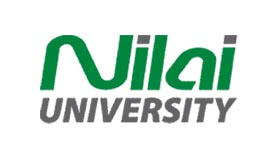
Start Chat with a Counsellor

| Study Mode | FULL TIME | ||||
| Level | UNDER-GRADUATE | ||||
| Duration | 3 years | ||||
| Intake |
|
This programme focusses on the design and application of thermal, fluid and mechanical power systems and the design, production and use of machines and tools. It provides a solid understanding of core concepts including engineering mechanics, thermodynamics, fluid mechanics, heat and mass transfer, materials science and engineering, CAD/CAM/CAE and engineering vibrations. Students will have the opportunity to be involved in mechanical project management.
This programme is accredited by the Engineering Accreditation Council (EAC); signatories of the Washington Accord and students can register with Board of Engineering Malaysia (BEM) upon completion of the programme.
The programme aims to:
| PEO 1 | Engineering Professionalism Graduates will establish themselves as practicing professionals in Mechanical Engineering or related fields. |
| PEO 2 | Continuing Professional Development Graduates will engage in systematic maintenance, improvement and broadening of knowledge, understanding and skills, and the development knowledge and interdisciplinary learning appropriate for industrial and academic careers. |
| PEO 3 | Sustainability And Environmental Engagement Graduates will contribute to sustainable development and engages with environmental issues with regard to profession. |
| PEO 4 | Engagement with Society Graduates will engage with social issue with regard to their profession. |
| PLO 1 | Engineering Knowledge - Apply knowledge of mathematics, science, engineering fundamentals and an engineering specialisation to the solution of complex engineering problems; |
| PLO 2 | Problem Analysis - Identify, formulate, research literature and analyse complex engineering problems reaching substantiated conclusions using first principles of mathematics, natural sciences and engineering sciences; |
| PLO 3 | Design/Development of Solutions - Design solutions for complex engineering problems and design systems, components or processes that meet specified needs with appropriate consideration for public health and safety, cultural, societal, and environmental considerations; |
| PLO 4 | Investigation - Conduct investigation into complex problems using research-based knowledge and research methods including design of experiments, analysis and interpretation of data, and synthesis of information to provide valid conclusions; |
| PLO 5 | Modern Tool Usage - Create, select and apply appropriate techniques, resources, and modern engineering and IT tools, including prediction and modelling, to complex engineering problems, with an understanding of the limitations; |
| PLO 6 | The Engineer and Society - Apply reasoning informed by contextual knowledge to assess societal, health, safety, legal and cultural issues and the consequent responsibilities relevant to professional engineering practice; |
| PLO 7 | Environment and Sustainability - Understand the impact of professional engineering solutions in societal and environmental contexts and demonstrate knowledge of and need for sustainable development; |
| PLO 8 | Ethics - Apply ethical principles and commit to professional ethics and responsibilities and norms of engineering practice; |
| PLO 9 | Individual and Team Work - Function effectively as an individual, and as a member or leader in diverse teams and in multi-disciplinary settings; |
| PLO 10 | Communication - Communicate effectively on complex engineering activities with the engineering community and with society at large, such as being able to comprehend and write effective reports and design documentation, make effective presentations, and give and receive clear instructions; |
| PLO 11 | Project Management and Finance - Demonstrate knowledge and understanding of engineering and management principles and apply these to one’s own work, as a member and leader in a team, to manage projects and in multidisciplinary environments |
| PLO 12 | Life Long Learning - Recognise the need for, and have the preparation and ability to engage in independent and life-long learning in the broadest context of technological change; |
PROGRAMME STRUCURE
Basic Engineering
Major Engineering
MPU1A
MPU1B
MPU2A
MPU 2B-F
(Choose 3 University Courses from Cat. B-F)
B
C
D
E
F
MPU3
MPU4
(only for Malaysian students without a credit in SPM BM)
ENTRY REQUIREMENTS
| STPM or equivalent | 2Cs (Mathematics & Physical Science) and SPM with a pass in English |
| UEC | 5Bs (Mathematics & Physical Science) and pass English |
| Foundation/ Matriculation/ Asasi | CGPA 2.00 |
| Diploma (in a related field) | CGPA 2.00 |
(for international students)*
| IELTS | 5.0 |
| TOEFL | 500 (PBT) / 61 (iBT) |
| Pearson | 36 |
| MUET | 3 |
*International students with qualifications from educational systems where English language is the main medium of instruction are exempted from this requirement.
International students who do not fulfill the English Language Requirements may join the Intensive English Programme at Nilai University which builds their skills in the language and prepares them for the TOEFL examination.
Copyrights © 2024-25 Education Malaysia. All rights reserved.
